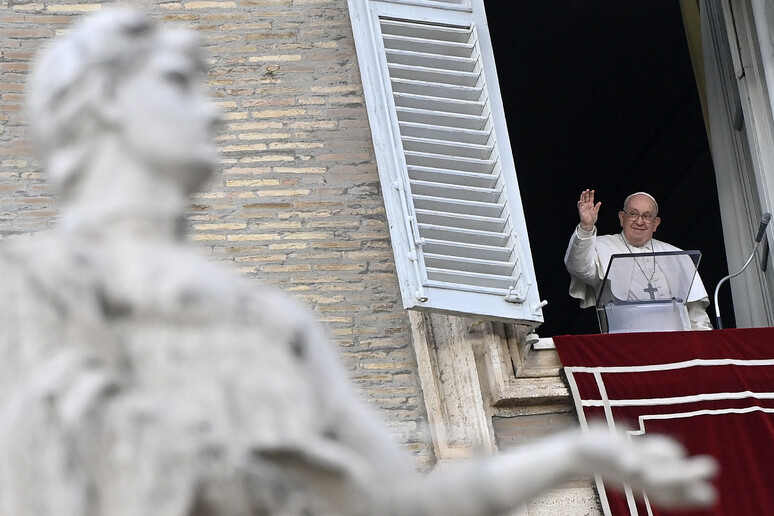No country should be left alone to
tackle forced migration, which is being driven by a number of
factors including poverty, war and the climate crisis, Pope
Francis said on Monday.
"Wars, poverty, the abuse of our common home and the continuous
exploitation of its resources, which are at the root of natural
disasters, are also driving thousands of people to leave their
homeland in search of a future of peace and security," said
Francis during a New Year audience with the members of the
Diplomatic Corps accredited to the Holy See.
"On their journey, they put their lives at risk on dangerous
routes, such as in the Sahara desert, in the Darién forest on
the border between Colombia and Panama, in Central America, in
northern Mexico, on the border with the United States, and above
all in the Mediterranean Sea," he added.
"In the last decade this, unfortunately, has become a huge
graveyard, with successive tragedies also due to unscrupulous
human traffickers," continued the pope, recalling that the
victims include many minors travelling on their own and urging
the Mediterranean to instead become a "laboratory of peace", a "
meeting place for different countries and realities on the basis
of our common humanity".
The Argentine pontiff insisted that "migration must be regulated
in order to receive, promote, accompany and integrate" new
arrivals in respect of "the culture, sensitivities and security
of the societies responsible for receiving and integrating
them", while also ensuring the conditions for prospective
migrants to be able to remain in their countries of origin.
"Faced with this challenge, no country can be left alone or
consider tackling the issue in isolation through more
restrictive and repressive legislation, which is sometimes
approved under the pressure of fear or to increase electoral
consensus," continued Francis.
"I therefore welcome the European Union's commitment to seek a
common solution through the adoption of the new Pact on
Migration and Asylum, while noting some of its limitations,
especially regarding the recognition of the right to asylum and
the danger of arbitrary detentions," he added.
ALL RIGHTS RESERVED © Copyright ANSA











